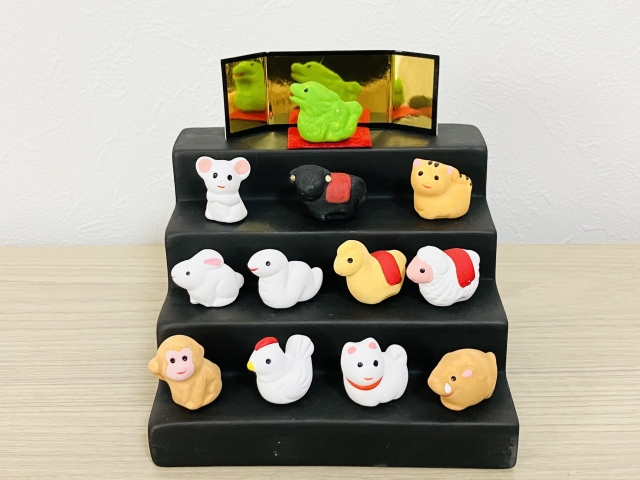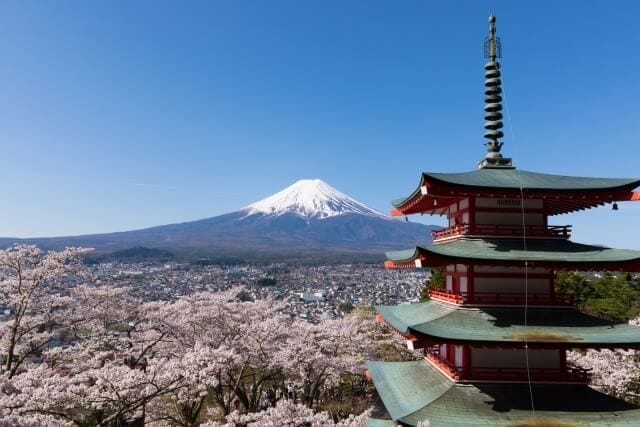Introduction: The Charm and Significance of Japanese Lucky Charms
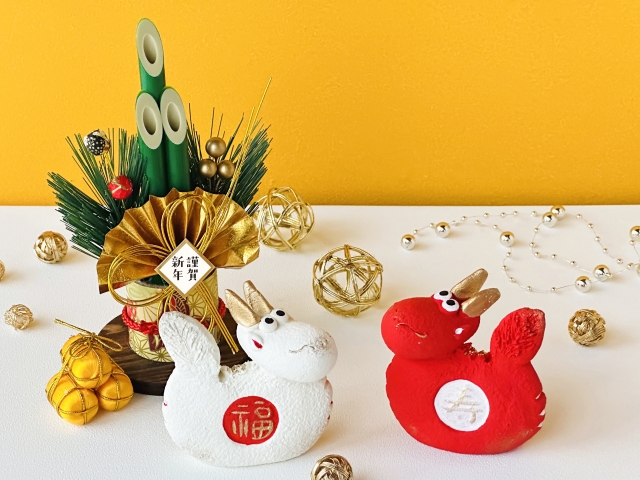
Japanese charms are loved and respected by many people in Japan and abroad for their diversity and rich history. Beyond their value as mere ornaments or gifts, these items have profound meanings to invite good fortune, ward off evil, and pray for success and good health.
The Historical Presence of Lucky Charms
Since ancient times, these items have been found in Japanese homes, businesses, shrines, and temples, and have been used to mark certain milestones and events throughout the year.
Exploring Iconic Lucky Charms of Japan
This article highlights some of the most famous of these uniquely Japanese lucky charms, focusing on the meaning they symbolize, their origins and history, and their role in modern society.
The Journey Through Tradition and Modernity
From waving cats to carp streamers to the seven gods of good fortune, this article explores how these charms have been incorporated into the daily lives and culture of the Japanese people, and how these traditions have continued into the modern era.
Deepening Cultural Understanding
Embark on a journey to deepen your understanding of Japanese culture through the unique stories and symbolism of each good luck charm.
Various Types of Lucky Charms in Japan
Japan boasts an array of lucky charms, each with its own unique meaning and historical origins. In this section, we delve into some of the most iconic charms, unraveling the symbolism and stories behind them.
1. Maneki-neko (Beckoning Cat)
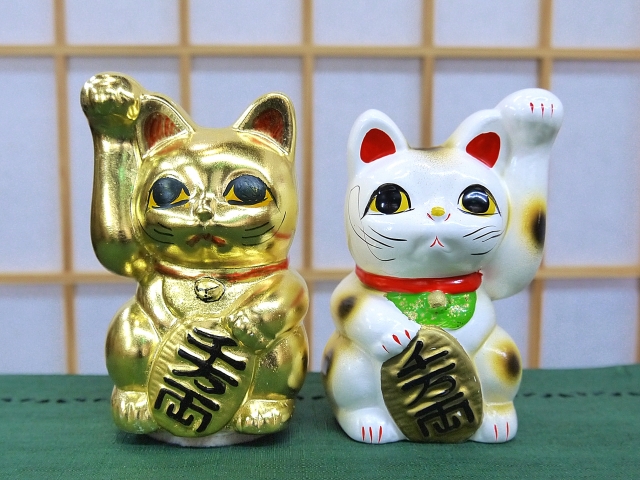
- Meaning: The maneki-neko is a symbol of good luck. It’s believed that a cat raising its right paw attracts wealth and prosperity, while a cat raising its left paw invites customers.
- Origin: Origin: The roots of maneki-neko are shrouded in various theories, dating back to the Edo period (1603-1868). One popular story tells of a penniless temple monk whose cat lured a feudal lord to the temple, leading to its subsequent prosperity.
2. Daruma Doll
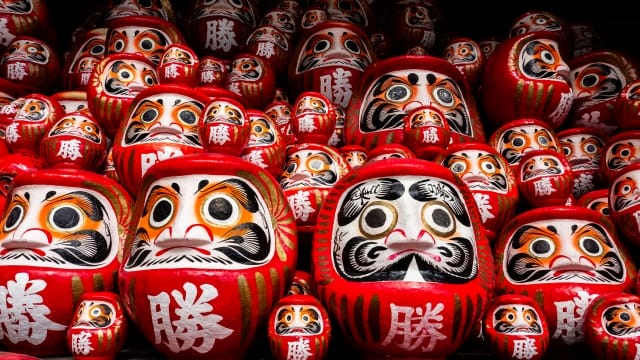
- Meaning: This amulet symbolizes perseverance and luck and is often used to manifest one’s goals. When a goal is set, one eye is filled, and when it is achieved, the other eye is completed.
- Origin: The Daruma doll was inspired by the Zen monk Bodhidharma. Legend has it that Bodhidharma’s limbs atrophied after prolonged meditation, giving the Daruma doll its distinctive appearance.
3. Carp Streamers
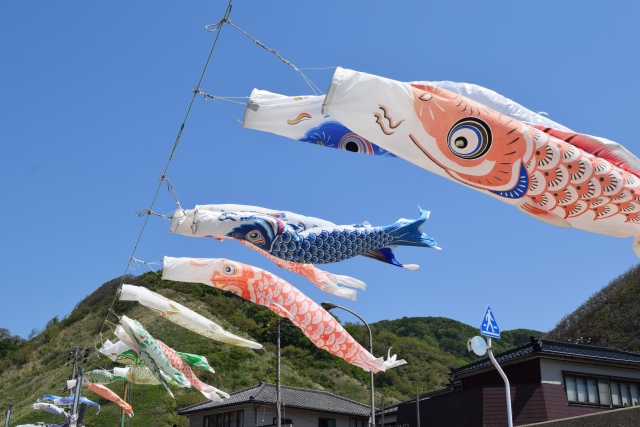
- Meaning: Carp streamers, or Koinobori, represent the wish for the robust growth and success of children. Traditionally displayed during the Dragon Boat Festival, they are especially associated with celebrating the health and development of boys.
- Origin: The concept stems from a Chinese legend in which a carp transforms into a dragon after crossing a waterfall, symbolizing children’s hope to overcome life’s challenges.
4. Seven Lucky Gods
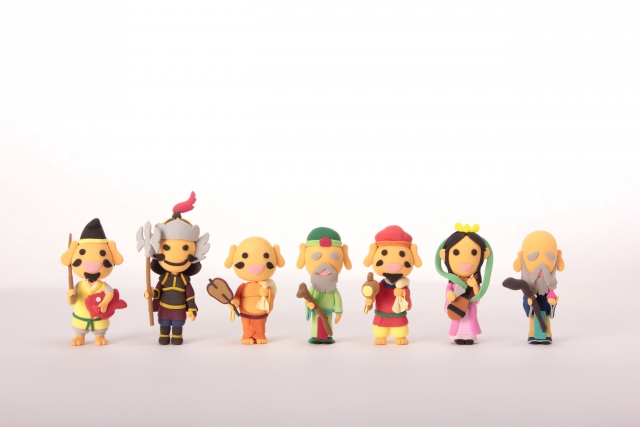
- Meaning: The ensemble of the Seven Lucky Gods is a harbinger of multifaceted prosperity, encompassing business success, academic achievement, and household security.
- Origin: Each deity comes from different religious backgrounds and legends, resulting in a unique blend that represents Japan’s rich cultural tapestry.
Through these charms, we glimpse into the intricate weave of Japan’s cultural and spiritual fabric, each lucky charm offering a unique story and symbolism that has transcended generations.
The Tradition of Gifting Lucky Charms in Japan
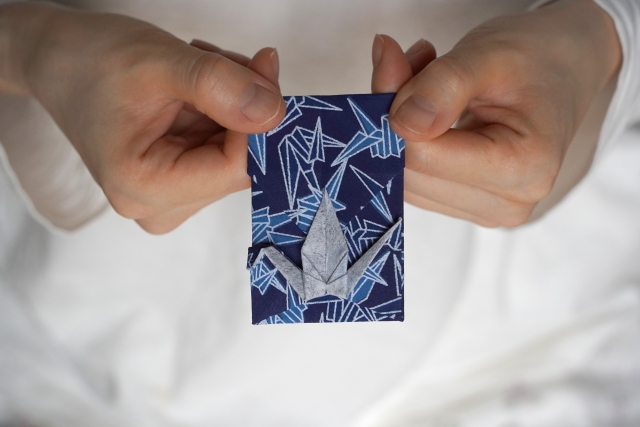
In Japan, the act of giving charms is not just a formality, but a deeply rooted tradition that carries significant meaning. Marking life’s important moments and special occasions with the gift of good luck charms is a way to convey good fortune, respect, and heartfelt wishes.
Below, we explore the customs surrounding the giving of good luck charms and detail which charms are most appropriate for specific occasions.
Housewarming and Business Opening Gifts
- Lucky Charms: Luring Cat, Carp Streamer
- Meaning: These charms are signs of prosperity for a new home or business venture. The waving cat is especially associated with business success and wealth, while the carp streamer symbolizes family health and children’s growth.
Wedding Gifts
- Lucky Charms: Cranes, Turtles, Seven Lucky Gods
- Meaning: Cranes and turtles represent longevity, marital bliss, and harmony. The Seven Lucky Gods are bestowed to bless the newlyweds with varied fortunes as they embark on their journey together.
Birth Gifts and Children’s Festivals
- Lucky Charms: Carp streamers, Daruma dolls
- Meaning: Carp streamers (Koinobori) and Daruma dolls are given to wish for the child’s healthy growth and success. In particular, carp streamers are given on Boys’ Day, Tango-no Sekku, symbolizing the wish for the child to have a strong mind and body.
Gifts for Academic and Professional Success
- Lucky Charms: Luring Cat, Daruma Doll
- Meaning: The Daruma doll, a symbol of goal attainment and good fortune, and the beckoning cat, a harbinger of business prosperity, are given to motivate and wish success to those embarking on new beginnings.
Retirement and Longevity Celebrations
- Lucky Charms: Cranes, Turtles, Seven Lucky Gods
- Meaning: Cranes and turtles represent longevity, health and prosperity, while the Seven Lucky Gods are given to honor and thank those retiring after long service or to elders wishing them continued good fortune.
Choosing a good luck charm is a thoughtful process that reflects the giver’s sincere wishes and warm feelings for the recipient.
Understanding the symbolism and significance of each charm, as well as considering the recipient’s circumstances and preferences, is crucial in choosing the perfect charm to give.
Through these cherished traditions, the culture of giving charms in Japan beautifully encapsulates collective hopes, respect, and affection, weaving a tapestry of goodwill and shared joy through various stages of life.
reference…Auspicious pattern

